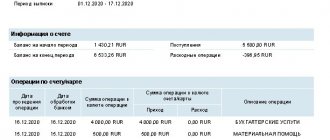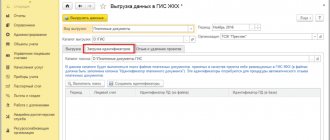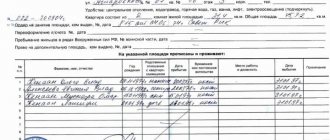The issue of splitting the apartment bill usually arises when one of the residents refuses to pay for utilities. In this case, splitting the accounts really helps solve the problem. But how to do this if the apartment is owned by the local administration? Is it possible to split a personal account in a municipal apartment? How to do this and who is best to contact with this problem?
Section of the account from the point of view of legislation
If the apartment is in municipal rental, then from the point of view of legislation there is only one way out - the conclusion of new contracts. It is worth noting that the division of a financial personal account in a municipal apartment can be requested by any citizen who has reached the age of majority and is recognized as legally capable, and is also registered in a specific living space.
The current Housing Code of the Russian Federation, which has been in force since 2005, does not allow or prohibit such actions. This is why utility providers may refuse to share.
Now there are two opinions regarding how to divide a personal account in a municipal apartment. The law accepts two points of view:
- account splitting is not possible;
- The division of the account can be done as before (under the old housing code of the Russian Federation).
It would seem that the Supreme Court will help to finally resolve this situation, but this is not entirely true. Judges have the right to refuse such claims, as this is provided for by law.
What happens after a court decision
After the court makes an appropriate decision, an agreement is concluded with each of the owners to pay for part of the living space and utilities.
All meters installed in the house are recognized as the common property of all owners. The owners of the apartment have a joint responsibility for timely prevention, verification, repair and replacement of metering devices. The transmission of information from metering devices will continue to be the responsibility of the owners. How the replacement and repair of failed equipment will be carried out must be determined by the owners themselves. From this moment on, each co-owner will receive a personalized receipt. This receipt usually indicates the full amount of payment and the size of the share established for each specific owner. The latter must calculate the amount to be paid independently.
With this approach, the debt of one of the payers will not affect those who regularly pay all their invoices.
Well, just in case, let’s mention that paying for utilities is the responsibility of the apartment owners. If there is only one owner, and there are more people registered in the apartment, the owner does not have the right to demand that registered citizens pay for part of the utilities, either personally or in court.
Vasilisa Ivanova
What do the lawyers say?
After the adoption of the new Housing Code of the Russian Federation, some experienced lawyers sided with citizens who are trying to split the bills for an apartment. Basically, they began to refer to the contradiction with certain articles of the Constitution of the Russian Federation, although practice proves that such arguments are ineffective in such proceedings.
So, is it possible to financially divide a personal account in municipal housing?
There really is no point in splitting the bill if relatives live in a municipal apartment. Such claims, as a rule, are not satisfied. But if two former spouses live in the same living space or one of the children starts his own family, then renewing the rental agreement makes sense.
Confusion of concepts
When ordinary citizens who do not have a legal education are faced with the question of how to divide personal accounts for an apartment, a confusion of existing concepts often arises:
- In a municipal apartment, only re-conclusion of tenancy agreements is possible.
- The court does not have the right to divide personal accounts. He can only oblige the management company or HOA to re-enter the agreement with the owners.
- Splitting the bill does not cancel existing rent debts. Moreover, when renewing lease agreements, the debt will be divided equally.
- If the court satisfied the requirement to renew the lease agreements and split the bills, then the communal apartment will automatically be divided, but many registered residents forget about other payments, for example, contributions for current and major repairs. Such lines in the receipt also need to be divided, but through the Criminal Code, attaching a court decision.
- The court's decision depends on many factors, including the area in which the claim is being heard. Therefore, lawyers warn that it is almost impossible to predict the outcome of the case.
If the property is joint
Is it possible to split accounts in a privatized apartment if it is jointly owned by spouses? During the privatization process, some apartments are registered not as shared ownership, but as joint ownership .
Such registration is carried out in the case of privatization of an apartment by spouses, who become co-owners and equal owners of the living space.
In the event of a divorce and the spouses continue to live together in the same territory, the question of separate payments arises quite often, since people maintain separate households and not always both regularly contribute funds to pay for housing and communal services.
In such situations, the question of dividing accounts inevitably arises, but dividing it in these circumstances is impossible. To solve the problem in this case, you need to start by changing the form of ownership of the apartment.
You should start by drawing up an agreement on dividing the living space into shares . To draw it up, you should contact a notary, who will determine the specific procedure for the owners.
After division into shares, each owner receives a Certificate from Rosreestr. This document will be the basis for dividing invoices for payment.
With this document, the owners turn to utility companies to generate accounts and draw up a separate agreement for the provision of services for each owner of the share.
You can find out what the statute of limitations is for declaring the privatization of an apartment invalid, as well as who has the right to re-privatize a residential premises, from our articles.
Is there a way out of the situation?
And yet, how to divide bills in a municipal apartment? There are ways. The easiest way to do this is when there are two families in the same room.
So, there are two options to solve the problem:
- The easiest way is to privatize the provided living space, and only then split the bills. This will help you avoid lengthy proceedings and get ownership of the apartment.
- If the previous option does not suit the residents, then one of them can contact the local Unified Settlement Center with a request to split the bills. It is advisable that he has in his hands notarized papers from all citizens registered in the apartment that they agree with this decision. If the employees of the settlement center refused, then it makes sense to go to court, although, as mentioned above, this option does not provide a complete guarantee that the accounts will be divided.
Writing an application to the court
Before going to court with a request to divide a personal account in a municipal apartment, you need to familiarize yourself with the rules for writing a corresponding application.
So, any responsible tenant, as well as any other registered resident of this living space who, for some reason, has separated from the family, can submit such an application. An application must be submitted to the office. It is worth choosing the site that relates directly to the disputed apartment. You must also provide the office with a receipt confirming payment of the state fee.
To correctly write an application, you can refer to existing articles 131 and 132 of the Civil Code of the Russian Federation. It details all the requirements for the document, as well as what needs to be indicated in the application.
After writing the application, you can proceed to collecting documents that will be needed during the hearing.
Where to buy housing with your own funds
After deciding to purchase real estate without intermediaries and using your own savings, the pressing question becomes - where and how to find suitable housing and a seller. To properly buy an apartment without a mortgage, you can use one of two options:
- secondary market, in other words, when a transaction is made with an apartment that has already been registered as the property of someone and with the direct participation of its owner;
- primary market - purchasing square meters in a newly built house through contact and concluding an agreement with the developer.
Each of these options has some special features.
Primary market
Before making a transaction, you need to pay attention to the following points:
- carefully select a developer, check his reputation, read reviews on the Internet and on the construction company’s website;
- when purchasing housing in an already rebuilt house, the buyer protects himself from the risks of unfinished construction and delays in commissioning;
- Buying a home in a house under construction will save money, but in this case the period for becoming an owner will be quite long.
Buying real estate in a newly built or still under construction house has a number of advantages. As a rule, the layout of apartments in new buildings has improved characteristics; you can choose an option with a larger living area.
Secondary market
In this case, the stability of communication systems, for example, electricity, water supply, is considered a plus. Whereas in new houses failures often occur.
Another advantage is the speed of completing the transaction. All you need to do is select an object, check the documents and the owner, and then sign the papers. However, there are risks here too, for example, the presence of encumbrances on housing or debts on utility bills. In any case, before signing the contract, you should make sure that the apartment is clean from a legal point of view.
Search for accommodation
It is worth starting from both the parameters of the future property and the amount of money available.
Criteria for selecting an apartment
There is a basic list of parameters by which in most cases the search for a suitable apartment occurs.
Selection criteria may be as follows:
- noise level near housing;
- proximity to transport stops and roads;
- the presence of schools, shops, clinics and the distance to these institutions;
- requirements for internal layout, number of rooms, presence of a warm balcony;
- the presence of an equipped playground for children and a yard in general, parking;
- proximity to parks and squares;
- distance from industrial zones;
- floor.
In any case, each person has a general idea of where he would like to live. This is what we should build on.
Inspection of the object
Getting to know a potential property must be done very carefully. Even as you approach the house, you should pay attention to the local old-timers. The presence of dubious persons is unlikely to please an ordinary citizen who wants to live in peace.
List of factors that you should pay special attention to:
- courtyard, entrance, elevator;
- technical condition of the apartment - repairs, ceiling, walls, baseboards, wiring, plumbing, lighting, sound insulation, temperature, etc.;
- area and availability of infrastructure;
- view from the window.
General advice is to conduct the inspection during daylight hours. Artificial light somewhat distorts the angle of view, as a result of which small details and problems may go unnoticed.
Another point is the smell. If there is a strong aroma of air freshener in the apartment, this may indicate that the owner is hiding the fact that the room is smelly. This is possible due to faulty sewerage or a landfill located nearby.
Negotiations with the owner
The next stage of the instructions on how to properly buy an apartment yourself involves negotiations with the owner of the property. The process involves reasonable bargaining over the price offered. Noticed flaws can serve as an argument for reducing the cost. However, you should not count on more than 10-15%.
If the owner too quickly agrees or accepts conditions that are clearly not beneficial for himself, it is worth thinking about it. It is likely that not everything is going smoothly with the object from the legal or technical side.
Advance payment
In this case, the buyer receives guarantees that the seller will not refuse the transaction. This requires a double refund of the deposit.
In turn, the apartment owner who is interested in selling it receives proof of the seriousness of the buyer’s intentions. In case of violation of the agreement by the latter, the advance payment will not be returned to him.
Legal registration of purchase
After all the preliminary manipulations have been completed, it is time to directly prepare the contract and sign the paper by the parties to the transaction. The whole process is also divided into several stages.
Checking documents for an object
Buying an apartment involves inspecting all documents for it provided by the owner. The condition is mandatory to fulfill, since the presence of original papers and the reliability of the information indicated in them will allow us to speak about the purity of the object from a legal point of view.
List of documents to study:
- a certificate certifying the right of ownership of the home;
- passport of each owner;
- paper confirming the rights of the owners to the object (purchase and sale agreement, privatization or donation agreement, certificate of inheritance);
- consent from the guardianship authorities, if one of the shares of the apartment belongs to a minor;
- consent from the spouse to the transaction, if any, or a court decision on the division of property if the marriage was dissolved;
- cadastral and technical passports for housing;
- certificate of absence of debt to pay utility bills.
Additionally, it is worth requesting an extract from the Unified State Register confirming the absence of any encumbrances on the apartment. You can obtain the paper yourself by contacting the territorial division of Rosreestr.
The information provided must be verified with the owner’s passport. If there are several of them, a written consent to sell the home, signed by each of them, will be required.
Registration of a transaction
After signing the agreement, the transaction and the transfer of rights to the object will need to be registered with the Rosreestr authorities. Without this procedure, the purchase process may be considered void.
To register you should prepare:
- statements from the parties to the transaction (the form can be obtained at the time of transfer of documents);
- real estate sale agreement;
- passports;
- title papers for the apartment;
- permission from guardianship if there are children among the owners;
- technical documents for housing;
- act of acceptance and transfer;
- consent from spouses, if any;
- confirmation of payment of the state contribution.
The list of documents must first be clarified at the Rosreestr branch or at the MFC. The absence of any paper may provoke a refusal to register the agreement.
The request is considered and the transaction is recorded within 10-20 days from the moment the citizens apply.
The final stage
After registration activities have been carried out to prove that the transaction has been completed, you can proceed to payment. Payment can be made either in cash, by transferring it through a safe deposit box in a bank, or by transferring money to the seller’s bank account. Upon receipt of funds, you should request a receipt.
The completion of the process is the transfer of keys to the new owner after payment and registration of the contract. The owner receives an extract from the Unified State Register of Real Estate, certifying the right to full ownership of the home.
The procedure for purchasing an apartment on your own has many subtleties. A person who is far from knowledge of legal issues may get confused in the nuances of a transaction of this kind.
However, paying attention and studying numerous information on how best to carry out the process will help you purchase an apartment without a mortgage, protecting the buyer’s budget from unnecessary costs.
The main thing is to carefully check the documents for the property and do not hesitate to ask questions to the potential seller.
A lawyer is ready to answer your questions.
Collection of necessary documents
So, after the application has already been submitted to the employee of the court office, you can begin collecting documents that will be useful for separating personal accounts. The conditions and procedure are established by current legislation.
The following documents must be provided for the hearing:
- Original extract from the house register. You can get it from the management company or from the chairman of the HOA.
- Copied personal account.
- Notarized copies of all documents that could prove that two separate families live on the disputed living space. This may be a divorce certificate of spouses, a marriage certificate for children and other documents. It is these papers that play a key role in making a decision.
- Certificate from the BTI.
- Receipt for payment of the fee and application (to be left in the office).
The list of documents is relatively small and it is not at all difficult to collect. As a result, residents can resolve a number of controversial issues.
Responsibility for non-payment of housing and communal services
It is worth noting that dividing a personal account in a municipal apartment is sometimes the only adequate solution. After all, when one tenant does not pay rent, a debt arises, which can cause all the citizens living in the apartment to suffer.
So, if receipts for utility services are issued regularly, and they are not paid for for more than three months, then the supplier can sue the residents.
There is one subtlety in this situation. If defaulters live in a municipal apartment, then the court, when considering a case of non-payment of the utility bill, may decide to evict citizens from rental housing. The only obstacle to making such a decision can be a difficult life situation. Conversely, the court treats tenants who do not pay their bills and lead an immoral lifestyle with particular severity.
Things are much simpler if the housing has already been privatized. No court has the right to evict owners. The only thing a judge can do is to make a decision to seize existing property and bank accounts, including those into which wages are received. This argument once again proves that property privatization is necessary and important for all citizens.
Rules for drawing up an application
An application for the allocation of shares for payment of housing and communal services must contain the following points:
- Information about the applicant (full name, passport details, telephone number).
- Information about the persons for whom additional accounts are required.
- Indication of the size of the owners' shares (based on Certificates).
- Signatures are the consent of all owners.
Other Features
Are there any subtleties when dividing a personal account in a municipal apartment? There are no special features. That is, it does not matter at all what area people will share.
For example, an ex-husband and wife decided to share a two-room apartment. Everything is clear here. Each person gets a room and the bill is half.
What if we are talking about a one-room apartment? The division is carried out in the same way as in the “kopeck piece”. That is, the division of bills occurs based on the area of the premises, and not on the number of rooms.
Who is the owner of a privatized apartment?
If the apartment is privatized for three people, who is the owner of such housing? This issue is now very relevant, because the end date of free privatization is 2021. Of course, the period of validity of this provision can be extended, as has already been the case several times. But it is also possible that instead of an extension, some other decision will be made on this issue. What is housing privatization? First of all, we are talking only about those apartments for which a social rental agreement has been concluded. What is homeowners' shared ownership of housing? How to solve practical issues in such cases?
Dividing a personal account in practice
A situation in which it is necessary to separate a personal account in a municipal apartment can arise in every house. Some people waste a lot of water, while others waste a lot of light. Especially many disputes arise in the event of the loss of a job by one of the family members. In such a situation, all payments are borne by one tenant. And if the apartment is very large, then the receipts are not issued for a small amount.
The highest percentage of positive decisions when dividing accounts through the court is observed in large cities of the Russian Federation, for example, Moscow and St. Petersburg. There, judges almost always satisfy the requirements, but on the condition that the municipal apartments are actually inhabited by strangers.
However, in other, smaller cities, claims are almost always rejected. This is due to an increase in the total debt for municipal housing, which is disadvantageous for local administrations.
For example, a woman who is a bona fide tenant divorced her unemployed husband. She regularly paid the rent, but decided to split the bills. Most likely, her claim will be denied, because before going to court she regularly paid for the entire living space, and after the separation of accounts, the debt on her husband’s receipt will accumulate, since he is not able to pay for utilities.
In such situations, it is recommended to contact a lawyer who knows the weak sides of the issue and will help with the case.
If it was not possible to reach an agreement
Unfortunately, co-owners are not always inclined to resolve the issue peacefully. There are situations when one of the owners does not want to participate in the maintenance of their property. In accordance with Part 1 of Article 247 of the Civil Code of the Russian Federation, ownership and use of property in shared ownership is carried out by agreement of all its participants, and if agreement is not reached, in the manner established by the court. Thus, if the owners of the apartment cannot come to a common decision, or the management organization refused the application, the only way to determine the procedure for paying for housing and communal services is through the courts.
A lawsuit to determine the procedure for payment for housing and communal services is sent to the district court at the place of registration of the defendant.
Along with the claim, the following package of documents must be sent to the court office:
- A copy of an identity document (with the original, to confirm the authenticity of the copy);
- Title document for the apartment. For residential premises transferred into ownership before 2000 - the corresponding agreement and registration certificate of the technical inventory enterprise. For those apartments that were acquired after 2000 - an agreement and a certificate of state registration of ownership. Agreements can be of the following content: donation, purchase and sale, equity participation in construction, privatization. Also, instead of a contract, there may be a certificate of the right to inheritance by law or by will. You must provide this document - a copy and the original (to verify the authenticity of the copy);
- An extract from the Unified State Register of Real Estate, received as close as possible to the date of filing the claim in court. The extract establishes who is the owner of the apartment at the time of going to court;
- An extract from the financial personal account (which, among other things, contains information about debts for payment for housing and communal services);
- Information on the number of people living in this residential premises, indicating family relationships (certificate of family composition);
- Documents confirming compliance with the pre-trial procedure - appeals to other owners, which they received but ignored. If the management organization refuses you, then a copy of your application to it and its written refusal.
- Documents confirming independent payment of all bills by the plaintiff (receipts, checks);
- Technical passport issued for the disputed residential premises;
- Receipt for payment of the state fee for filing a statement of claim (300 rubles).
The hearing must be scheduled 30 days after filing the claim. The decision made will enter into legal force 10 days after its announcement. The defendant has the right to challenge the decision in a higher court within these ten days.
The statement of claim may be considered in the absence of the defendant. For example, if the other owner interferes with you and decides not to appear at court hearings. In this case, if he was properly notified of the time and place of the hearing (for example, by registered mail with notification), the court can legally consider the case in his absence.
As a rule, the court does not refuse to satisfy such claims. And the amount of payment for housing and communal services is divided in proportion to the share of each of the owners. There are judicial precedents when the owner, who does not live in the apartment, and pays utilities at the place of residence, reduces the share of payment in the disputed apartment.
After the decision enters into legal force, one of its certified copies must be sent to the management organization. The decision made is binding. Based on it, the management company will make the necessary calculations and organize separate receipts for each owner. If the Criminal Code continues to be in no hurry to execute the court decision, it is necessary to contact the Federal Bailiff Service to initiate enforcement proceedings.











